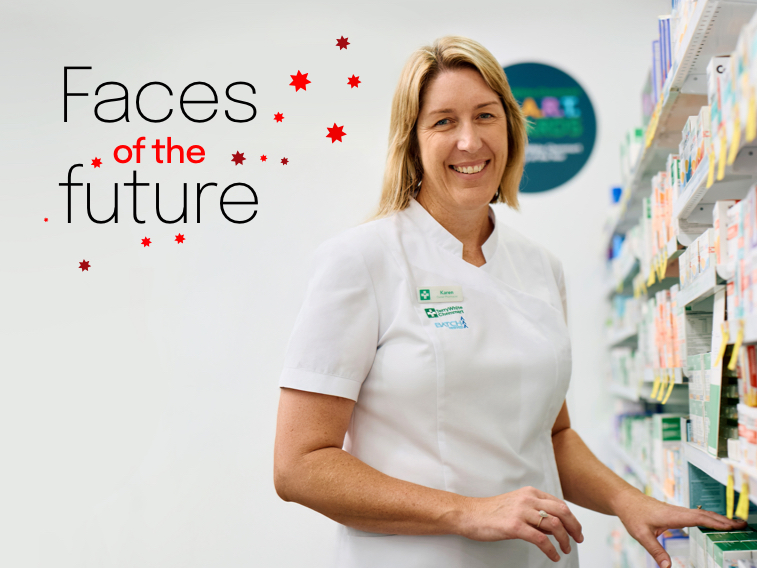Former professional netballer Karen Brown’s passion for scoring healthcare innovation goals has seen her continually break new ground.


Article
Does COVID-19 have the power to change thinking on how we tackle chronic disease?
Right now, preventative health is in the spotlight like never before. But will COVID-19’s acute changes influence long-term thinking about how we tackle chronic disease?
In the world of healthcare, change can often feel agonisingly incremental. But not in a time of global pandemic, when how we think of preventative health has been turned on its head.
From long-term interventions to help prevent obesity and chronic disease, overnight the concept took on a completely different meaning: prevention was all about instantaneous measures – hand hygiene, social distancing and quarantine – to stave off a virus that could strike at any time.
This rapid rethink raises a big question: will behavioural changes forced upon the population by a global pandemic drive a rethink around prevention over the longer term?
Professor Andrew Wilson, Co-Director of the Australian Prevention Partnership Centre at the Sax Institute, suspects that acute and chronic diseases might continue to occupy different spaces in people’s minds.
“Something as in your face as COVID-19 is impossible to ignore,” he says. “The consequences of obesity are also enormous, but they’re much more insidious. And, at an individual level, being overweight has been normalised in our society, so it’s much less likely to be taken seriously.”
Wilson also questions if people will equate methods of preventing coronavirus with the actions to prevent obesity, heart disease and cancer, though those processes are quite closely aligned. “In both cases you need to change individual behaviours and reinforce those changes with regulation and policy,” he says. “The main difference is that people are more prepared to accept changes and restrictions in an acute situation than in a chronic one.”
Even if people can be persuaded to change their behaviour, maintaining such change is difficult.
“This is something we deal with all the time in chronic disease,” Wilson says. “People who change their diet for the better often lapse after a few months. With COVID-19, the question is, how do you persuade people to keep going with things like hand washing and physical distancing?”
In regard to prevention at the acute and chronic level, Wilson believes the pandemic has reinforced interdependencies between public health and the care provided by clinicians.
“In terms of chronic disease prevention, we would like to see more health practitioners accept prevention as a core part of their business,” he says. “Whether or not their patients’ attitudes change, we need them to take on the role of identifying people at risk of chronic disease and helping them to change harmful behaviours. GPs do that fairly routinely but, otherwise, there’s still a long way to go.”
Wilson is optimistic that COVID-19 will spur greater government commitment to prevention at a macro level.
“One good sign is that the National Cabinet has endorsed a review of public health capacity in Australia,” he says. “Hopefully, that will consider how workers can best respond to the challenges of both acute and chronic disease.”
Targeting COVID-19 and beyond, the review will look at how state, territory and federal governments can improve long-term sustainability of the public health workforce. Among its measures, the plan will:
Health is of course much more than physical.
And, beyond physical chronic illness, Kate Galvin, Customer Executive of NAB Health, is also concerned about the impact of the pandemic on mental health. NAB’s latest Australian Wellbeing Survey, completed when the first set of coronavirus restrictions were starting to ease, found a predictable drop in overall anxiety. However, there was a distinct and worrying gap between those reporting high and low levels of wellbeing.
“Young Australians and low-income earners are among those with the lowest wellbeing, while the unemployed are the lowest of all across all of the 58 demographic groups tracked in this report,” Galvin says. “The survey also found that the loneliest group in Australia is young men aged 18 to 29.”
As such, it’s not surprising that data collected through HICAPS, NAB’s healthcare claims and payment solution, shows that, along with GPs and pharmacists, psychologists have been among the most sustainable businesses during the pandemic.
For Galvin, to bring the conversation on prevention full circle in 2020, physical and mental health must both be part of the dialogue.
“Telehealth helped a lot by enabling remote consultations in the short term,” Galvin says. “But I think the government needs to look more closely at how we can help people suffering the greatest impact from COVID-19 to stay mentally well.”
© National Australia Bank Limited. ABN 12 004 044 937 AFSL and Australian Credit Licence 230686.